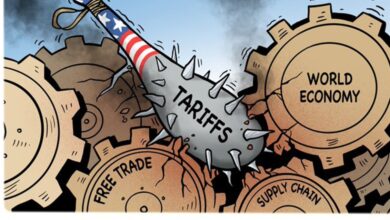India re-establishes diplomatic presence in Kabul

India on Thursday resumed its diplomatic presence in Kabul by deploying a team in its embassy in the Afghan capital, over 10 months after it pulled out its officials from the mission following the Taliban’s capture of power.
The Ministry of External Affairs (MEA), in a statement, said an Indian technical team has reached Kabul on Thursday and has been deployed in the embassy there.
The reopening of the embassy came three weeks after an Indian team led by JP Singh, the MEA’s point person for Afghanistan, visited Kabul and met acting Foreign Minister Mawlawi Amir Khan Muttaqi and some other members of the Taliban dispensation.
It is learnt that the Taliban side had assured the Indian team that adequate security will be provided if India sends its officials to the embassy in Kabul.
“In order to closely monitor and coordinate the efforts of various stakeholders for the effective delivery of humanitarian assistance and in continuation of our engagement with the Afghan people, an Indian technical team has reached Kabul today and has been deployed in our embassy there,” the MEA said.
The MEA has been maintaining that the embassy was not shut as only India-based officials were brought back home and that the local staff continued to function at the mission.
“Recently, another Indian team visited Kabul to oversee the delivery operations of our humanitarian assistance to Afghanistan and met with senior members of the Taliban,” it said, referring to the visit to Kabul by the Singh-led team.
In the statement, the MEA said an assessment of the security situation was also carried out during the visit of that team.
“Our longstanding links with Afghan society and our development partnership including humanitarian assistance for the people of Afghanistan, will continue to guide our approach going forward,” the MEA said.
It said India has a historical and civilizational relationship with the people of Afghanistan.
People familiar with the development said India decided to re-establish its diplomatic presence in Kabul considering its strategic interests.
When the team led by Singh visited Kabul, it was sad that the aim was to oversee the delivery of India’s humanitarian aid and meet with senior members of the Taliban.
After the team’s meeting with Muttaqi on June 2, Afghan Foreign Ministry spokesperson Abdul Qahar Balkhi said Muttaqi stressed on India’s diplomatic presence as well as provision of consular services to Afghans.
The acting foreign minister welcomed the delegation to Kabul, “calling it a good beginning” in ties between the two sides.
The people cited above said the Taliban had been giving signals to India that its diplomatic presence would be welcomed.
In September last year, after the Taliban takeover of Kabul, India’s envoy to Qatar, Deepak Mittal, met senior Taliban leader Sher Mohammad Abbas Stanekzai at the Indian embassy in Doha.
In the last few months, India supplied several consignments of humanitarian aid to Afghanistan.
India has been pitching for providing unimpeded humanitarian aid to Afghanistan to address the unfolding humanitarian crisis in the country.
It has not yet recognised the Taliban regime in Afghanistan.
Concerned over developments in Afghanistan, India hosted a regional dialogue on the situation in the country last November that was attended by NSAs of Russia, Iran, Kazakhstan, Kyrgyzstan, Tajikistan, Turkmenistan and Uzbekistan.
The participating countries vowed to work towards ensuring that Afghanistan does not become a safe haven for global terrorism and called for the formation of an “open and truly inclusive” government in Kabul with representation from all sections of Afghan society.




